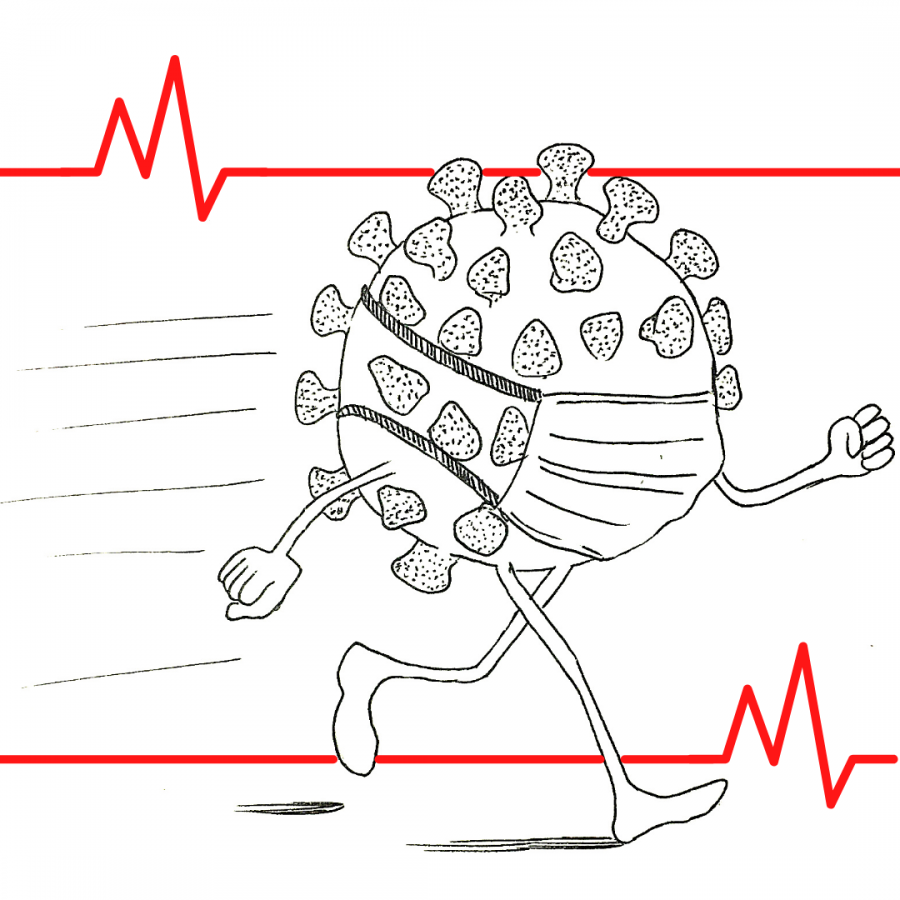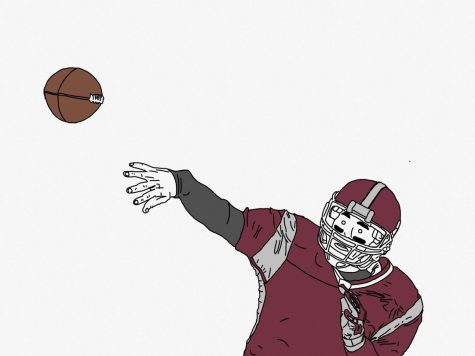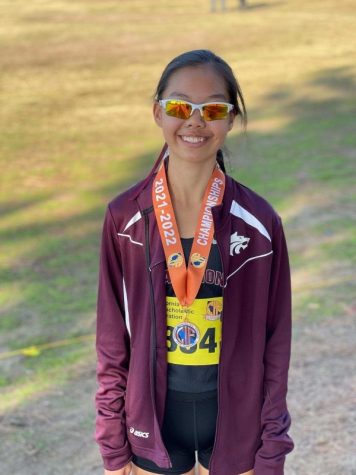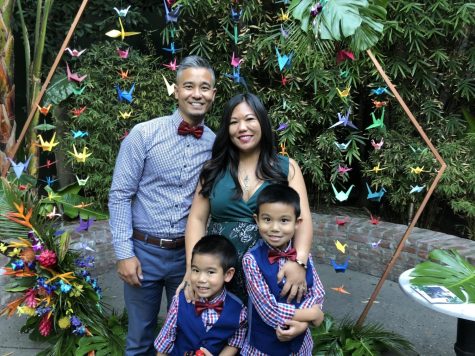To go or not to go: inside perspectives on attending athletic practices during Claremont’s most severe COVID-19 surge
As reported in a previous article, all CHS sports practices were halted on Nov. 30. Despite LA County being an epicenter of the COVID-19 pandemic and the continual surge of cases after fall and winter holidays, practices of select sports were resumed starting Tuesday, Jan. 5, following the same guidelines outlined in previous articles in the Wolfpacket: Novel coronavirus infects sports: recently begun practices include novel routines, and COVID-19 sidelines CIF fall season. The decisions to resume cross-country, water polo, and tennis practices were sanctioned by the state and CIF Southern Section given that LA County was, and is, in the purple tier for infection rates, but CUSD ultimately made the choice to start practices with state approval. Some practices were often ill-attended and all were halted effective Saturday, Jan. 9, due to the increasingly dire situation in the county and of its ICU capacity.
Nevertheless, on Tuesday, Jan. 26 cross-country practices are scheduled to resume, with a potential cross-country season being planned by Palomares League athletic directors for late February and March, the sport being the only “fall” sport cleared by the state to compete in the purple tier. The water polo teams are projected to resume practices Jan. 30, and the tennis team is projected to hold tryouts beginning Feb. 9.
In order to offer a new perspective on COVID-19’s impact on sports, the Wolfpacket interviewed athletes about their motivations for either taking the risk of returning to practice during January’s unprecedented surge or continuing to train individually, from home.
On a personal note, as a cross-country athlete myself, I did not (and still do not plan to) return to team practices, much less compete, until the situation improves significantly because even with some distancing measures, I feel that attending practices would unreasonably endanger my personal and community health.
Below are selections from interviews with six athletes from the three sports.
– Rowan Orlijan-Rhyne
Here, reporter David Begazo interviews junior Rubén Denson about his thoughts on returning to cross-country practice:
Why did you decide to return to cross-country?
I made the decision to return to practice because I love the sport of running. Actually, let me rephrase that: running is much more than a sport. It’s a lifestyle. Every run is a gift. You never know when life decides to deny you the opportunity to get up and run. So, of course, when I found out that practice was back on, I had to go back. For so long I wanted to run again with the team. I realized there would be risk involved in going to team practice, but I was able and willing to make the decision of going back for myself.
Did the current spike in cases ever affect your decision?
Not at all. It’s a general area of concern, but it never changed my mind on the importance of team running. I was in somewhat of a low place emotionally before getting back to practice. So, of course, I was overjoyed when I found out we were set to get back. Also, when you’re out running, you’re in the open air naturally distancing yourself. There’s a tendency to expect space on a group run. Naturally, with this in mind, I made the decision to continue training through the case spike. I was in great health and so were my teammates.
What would have to happen in order for you to skip out on practice due to the pandemic?
As it pertains to school training, the only thing keeping me from running with the team is the higher-ups who dictate whether or not we practice. Still, they can’t keep me from running.
How much of a factor do you believe fear has in the decisions of athletes who skip out on practices?
I believe that fear of the virus is real and athletes who choose to opt out of running with the team are justified in their decision. I’m not here to tell people what they can and can’t do or what they should or shouldn’t do. My opinion is that cross-country athletes deserve the opportunity to practice and compete if they so choose. I do believe fear is taking hold of some athletes, but I did not allow it to dictate my own decision. Virus doesn’t prey on high school cross country runners. I’m willing to take the risk of running for the sake of my physical and mental health and well-being. That’s my prerogative.
Any final comments on the situation?
If a runner wishes to opt out of practice and competition, so be it. Now, if a runner is ready and willing to return to practice, it is equally important they too choose what is best for them. I speak on behalf of quite a few teammates when I say that it is time runners get back to running. Some of us really need each other right now. Together we are stronger.
Next, Begazo interviews cross-country senior Brenna Bradfield to showcase her perspective as an athlete who chose not to return to practices on Jan. 5:
Why did you decide not to return to cross-country?
I’ve decided not to go to practice because at the time which we were supposed to start, COVID cases in LA County were the highest that they’ve ever been. It was like one in five people [being tested] who were infected with COVID, so I knew that statistically that meant that I would be at practice with people that could be infected. I just didn’t think that was the safest thing to do and I thought it would be better to run on my own and continue to train by myself.
What would have to happen in order for you to convince you to return to practice?
I definitely would like to see numbers in LA County go down, which is, of course, the biggest thing. I would like to also see an increase of social distancing within our practice. When we were initially allowed to practice, there were a couple of issues with people wearing their masks, but it wasn’t too bad. I just want to make sure that everyone is socially distanced and that everyone is split into more groups to make sure everything is really safe. Most importantly, the numbers in LA County need to go down and it needs to be safer for everyone.
Do you believe cross-country has done enough to ensure the safety of their team members and coaches?
I think they’re definitely doing their best. I know of course that the coaches have the best intentions in mind for us and they wouldn’t obviously want anyone to get sick. They’ve been really great throughout all this, saying that if you’re not comfortable going back to practice, then you don’t have to. It’s really great knowing that they did have our best interests in mind. I definitely appreciated that. They have done enough to ensure our safety, and they have been really good about enforcing mask wearing at practice.
Would you consider runners who still go to practices negligent or careless, considering the current circumstances?
No, because I know they just want to get out there with their teammates and run and continue to train. I think that everything is up to each person and how comfortable they feel, and I wouldn’t consider anyone going to practice right now as someone doing anything wrong, especially If the state says we can go to practice. They’re not doing anything wrong. I just think it’s a personal decision for me and that has nothing to do with how comfortable anyone feels and I think if you feel comfortable going back to practice, that’s great. By all means, definitely go back, especially if they’re saying you can. There’s no reason to not listen to the experts, especially at this point, so no, I think it’s merely a decision that has to be made on a person-by-person basis.
In the first of two interviews with tennis athletes by news editor Charles Jiang, senior Aidan Poopat shares his reasoning in his decision to attend practice:
Why did you decide to return to tennis practice?
I really wanted to be able to play with my friends and teammates again and have that team experience for my senior year. Also when I’m practicing by myself or with my coach, I don’t have the opportunity to play with other people very often so going back to practice really offered a fun way to play.
How do you think the tennis coach and team are handling the pandemic right now and do you believe that they have created a safe environment for players to be in?
I think they definitely have created a safe environment. I mean, we are also really lucky that tennis takes place outside with players on opposite sides of the court so that also helps to maximize safety. We also wore masks whenever we were in close contact with each other and stayed socially distanced throughout the practice. They also cancelled practices recently, so I definitely think they are doing everything they can to ensure that safety comes first.
Did the spike in COVID-19 cases in LA affect your decision on whether or not you had decided to return to practice?
It didn’t really affect my decision that heavily because I know that my teammates were really responsible when it came to not going out. We also had a lot of precautions in place that we had to follow so it definitely felt really safe.
How do you think the absence of players in team practice will affect the overall team and performance of the team?
I think the biggest part is that our team’s chemistry will be affected because if we aren’t allowed to play together then we definitely won’t know how to play together. I also think that if people don’t show up to practices they could become rusty and our game play would be affected as well.
Do you plan on returning to practice if they were to resume in February? If not, what would need to happen for you to feel safe to return? If yes, what would need to happen for you to skip out on practice?
I definitely plan on returning to practice if they were to resume. What would prevent me from going to practice is if someone I know or someone I got in contact with had contracted COVID-19.
Below, Jiang interviews tennis senior Salma Mohideen about her decision to forego January practices:
Why did you decide not to return to tennis practice?
I just decided not to because my grandma is currently living with us and I didn’t want to put myself in a situation where I could possibly be putting her at risk. Also during the week that practices resumed, COVID cases in LA were at an all time high as well, so that definitely also factored into my decision to ultimately not return to practice.
How do you think the tennis coach and team are handling the pandemic right now and do you believe that they have created a safe environment for players to be in?
Since tennis isn’t really a contact sport there are not a lot of risks involved. I think that the rules and precautions outlined by the coach and the district would make for a safe environment, so I think that as long as everyone follows those guidelines and is trying to be as safe as possible, tennis is definitely a safe sport to play in a team setting during the pandemic.
What would need to happen for you to feel safe/comfortable with returning to practice with the rest of the team?
I think I would have to see a significant decrease in COVID cases since the current situation with COVID makes playing non-contact sports still very difficult. I also would feel comfortable at practice as long as everyone follows the COVID guidelines and acts in the safest way possible.
How do you plan to keep up with training without going to practice?
Currently, I am just practicing alone and with my family at times. I’ve also been trying to stay in shape by going running and just staying active.
What do you miss most about not attending the regular in-person practices
I think I really miss being able to spend time with the team and being able to make memories. I really miss the time we spend traveling to and from games as well as just all the fun things we would do during practice.
In the final interviews of this piece, assistant editor-in-chief Joseph Salvinski interviews two water polo players. Here, Salvinski interviews junior Zach Martin about his decision to return to practice:
Why did you decide to return to practice?
A lot of it was because I was feeling very out of shape over the pandemic, just because I have not gotten lots of exercise. Another reason is that it gave me a good way to have social interaction.
Do you believe that there were enough precautions to ensure the safety of the athletes?
I think that we were safe as it was; we were staying away from each other and wearing masks. I mean there is always a risk, but we did everything we could to minimize it.
Do you believe that the absence of other athletes will affect the program?
I think that the people who are dedicated to it [water polo] showed up and they are the ones that are really going to make the difference.
To conclude this collection of Q&As, below, Salvinski interviews water polo senior Aaron Kim:
Why did you decide not to return to water polo?
I was actually very excited to return to water polo, and I was looking forward to it, but then I went through a lot of changes in the past two months. I picked up my second job and on top of that, thinking about college and what I wanted to do. As I started working at my second job I got to meet a lot of new people … and my perspective kinda shifted, and I started to see so much more. And I realized how narrow-minded I was for a while even though I thought I was so open-minded. I came to a realization, as much as I love water polo, after high school I am not really going to pursue it, other than recreational purposes. I want to focus on my career, I am building so many other connections with people and I have contacts who are willing to connect me with people who have been in the industry for years and years, and who will help me make my samples and get my name out there.
What would have had to happen for you to return to practice?
If water polo had started two to three months earlier, then I would not be here right now. It would not have affected too much [in relation to his business]. I would have started to take my career more seriously either way… it was just timing.
Do you think that water polo did enough to ensure the safety of team members and coaches?
I don’t think I really have a say in that, I am no expert. From a scientific standpoint, it is kinda not smart that we are even doing sports, so from a scientific perspective, I am sure they would advise not to do any sports in general. To meet the needs of the people, I think you guys did a pretty good job, but I wish that you guys were more strict on guidelines. Attending practice is simply up to them and I just hope everyone realizes whatever choices you make, and if anything bad happens because of them, you just have to take responsibility. I am not going to condemn people or say that they are terrible. As long as they do, then I don’t really have much to say, I am no better than anyone else to condemn people like that.
Do you believe that the absence of other players will affect the program?
It is definitely possible. I have faith in Kristin [Claremont teacher and Head Water Polo Coach Kristin Rodriguez] and know that she is really good at reaching out to people and making connections, and I have no doubt in my mind that her reputation will precede her and that more people will want to come and join. If anything I feel that COVID will be a little setback for her and for the team and then afterward I have no doubt that Kristin will bring the team back.
Any final comments on the situation as a whole?
I just hope people stay positive. Something I am very proud of and happy about during COVID is that I trained myself to have a positive attitude about all of this and it really does change a lot once you make an effort to be positive. I used to always be the guy that was like ‘oh we’re done for’ if something bad happens — gotta fix it or we’re just done. But after fixing it and deciding to be more positive and to make more of an effort, it helped me grow as a person. Even though it sucks right now for everyone, I just hope that if anything, this will soon pass, and that everyone comes out okay, and everyone comes out a better person.
Hello there! Our goal is to provide relavent, engaging journalism for readers of all ages. Your donation will support the student journalists of the Wolfpacket at Claremont High School, and will allow us to purchase equipment, print our monthly issues, and enter in journalism competitions. We appreciate your consideration!
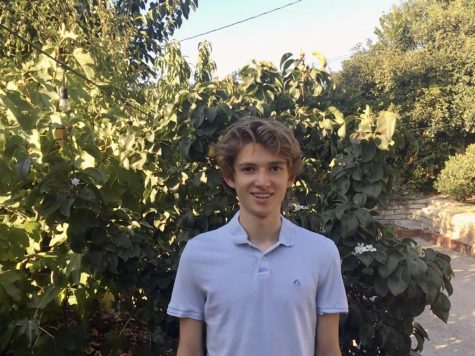
A senior in his third year on the Wolfpacket staff, Rowan Orlijan-Rhyne, occasionally referred to as Rowan “Orange Rind” by his Wolfpacket peers, strives...
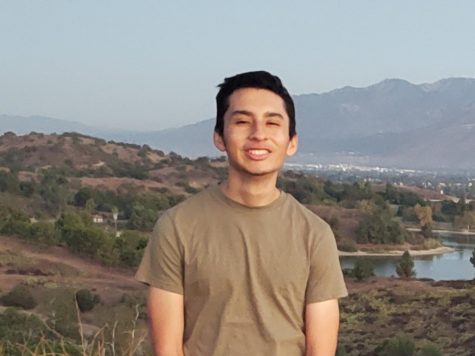
David Begazo is a senior at CHS and an Opinions Co-Editor for the Wolfpacket. He loves to write articles and was lured by the Opinions section due to the...
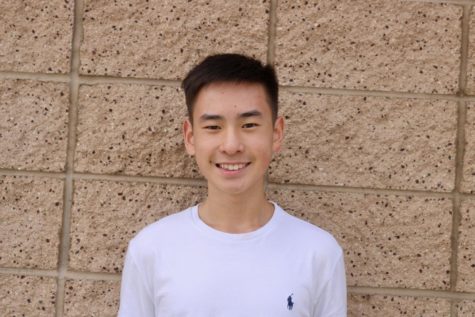
Charles Jiang is a senior at Claremont High School currently serving in his fourth year on the Wolfpacket as the Head News Editor. Throughout his years...

Joseph Salvinski is now in his fourth year of serving on the Wolfpackets staff, and throughout those years has been a: reporter, Assistant News Editor,...



